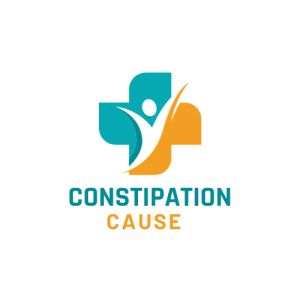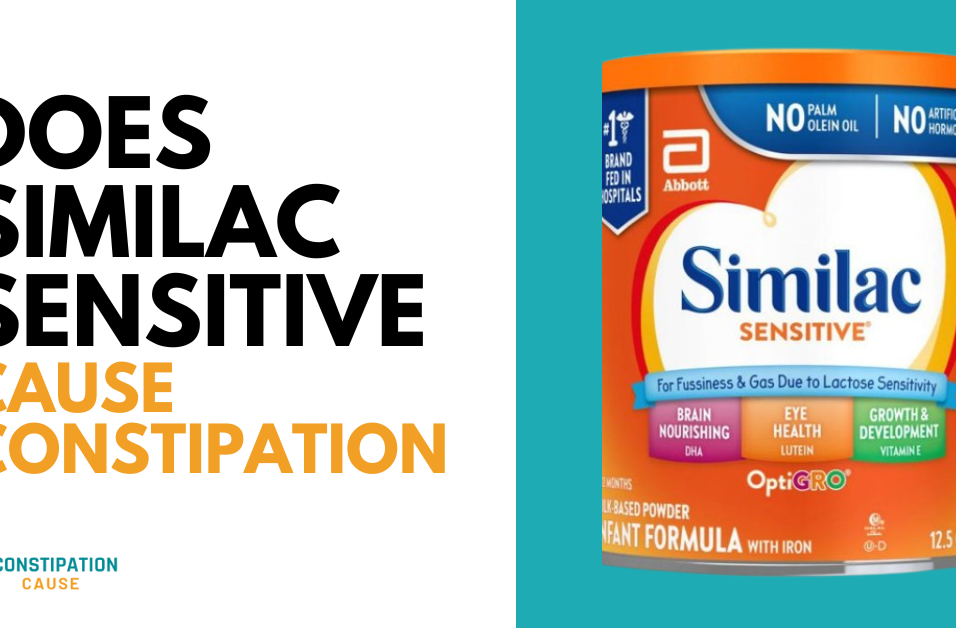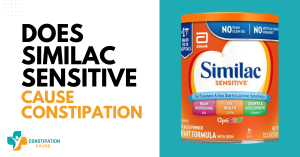Have you ever came across a situation when you are dealing with constipation, but suddenly, you find yourself battling an unexpected fever, accompanied by uncontrollable chills?
If your answer is yes or you are simply surprised to read this, then this article is all you need to read. This is because, this page consists of all the answers to your queries especially the most common one; “Can constipation cause fever and chills?”
So, without wasting a minute, let’s dive into the details of this surprisingly weird relationship between fever and constipation.
Understanding Constipation:
Constipation refers to a condition characterized by infrequent bowel movements or difficulty passing stools. Typically, if you have fewer than three bowel movements in a week or if the stools are hard, dry, and difficult to pass, you may be experiencing constipation. Common symptoms include:
- Infrequent bowel movements: Having fewer bowel movements than usual.
- Difficulty passing stools: Straining during bowel movements.
- Hard stools: Stools that are dry and difficult to pass.
- Incomplete evacuation: Feeling like you haven’t completely emptied your bowels.
- Abdominal discomfort: Pain or discomfort in the abdominal area.
- Bloating: Feeling bloated or experiencing abdominal distention.
Causes of Constipation:
Several factors can contribute to constipation, including:
- Not consuming enough fiber-rich foods, such as fruits, vegetables, and whole grains,
- Lack of physical activity or exercise can slow down the digestive system and contribute to constipation
- Certain medications, such as opioids, antidepressants, antacids containing aluminum or calcium, and some antihistamines, can cause constipation as a side effect.
- Various medical conditions can affect bowel function and lead to constipation, including irritable bowel syndrome (IBS), hypothyroidism, diabetes, neurological disorders, and colorectal disorders.
Fever and Chills: Causes and Symptoms
Fever is a temporary increase in body temperature, usually in response to an infection or inflammation.
Causes:
- Infections: Bacterial, viral, fungal, and parasitic infections can all trigger fever. Common examples include the flu, urinary tract infections, pneumonia, and strep throat.
- Inflammatory Conditions: Conditions such as rheumatoid arthritis, inflammatory bowel disease, and vacuities can lead to fever due to the body’s immune response.
- Medications: Some medications, particularly antibiotics, can cause drug-induced fevers as a side effect.
- Cancer: Certain types of cancer, such as leukemia and lymphoma, can cause fever as a result of the body’s response to cancer cells.
Symptoms:
Fever is often accompanied by other symptoms, including:
- Chills or shivering
- Sweating
- Headache
- Muscle aches
- Fatigue
- Loss of appetite
- Dehydration
Chills refer to feelings of coldness accompanied by shivering or shaking, often in response to a fever or rapid temperature change. Among these health concerns, do Adipex pills effect on your digestive health. Some people admitted that Adipex cause constipation if you’re one of them then figure this out.
Causes:
- Infections: Similar to fever, infections are a common cause of chills. When the body’s temperature-regulating mechanisms detect an infection, they may induce chills to raise the body’s temperature.
- Cold Exposure: Exposure to cold temperatures or cold environments can trigger chills as the body attempts to generate heat to maintain its core temperature.
- Emotional Stress: Intense emotions such as fear, anxiety, or excitement can sometimes cause chills.
Symptoms:
Chills are often accompanied by other symptoms, including:
- Fever
- Goosebumps
- Shivering or shaking
- Pale or bluish skin
- Increased heart rate
- Increased respiratory rate
Does Constipation Cause Fever and Chills?
While constipation itself is primarily characterized by difficulty passing stools and infrequent bowel movements, it is not typically associated with fever and chills. However, in some cases, severe or prolonged constipation may lead to complications that can indirectly cause systemic symptoms, including fever and chills. Although PCOS is one hormonal disorder in females. If you think excessive hormones may leads to constipation then read this and unlock your fear.
To answer your question ‘can being constipated give you fever?’ you need to read the following content.
Possible Indirect Causes:
- Impacted Stool: If constipation becomes severe and leads to the formation of impacted stool, it can cause inflammation and irritation of the intestines. In rare cases, this inflammation may trigger a systemic response, potentially leading to fever.
- Bowel Obstruction: Chronic constipation, if left untreated, can sometimes progress to a more serious condition called bowel obstruction. Bowel obstruction occurs when the intestines are partially or completely blocked, preventing the passage of stool. In severe cases, bowel obstruction can lead to abdominal pain, vomiting, and fever.
- Secondary Infections: While constipation itself does not cause infections, prolonged retention of stool in the colon can create an environment conducive to bacterial overgrowth. In rare instances, this bacterial overgrowth may lead to secondary infections, which could potentially cause fever and chills.
Can Diarrhea Cause Fever And Chills?
Yes, diarrhea can cause fever and chills, especially if it is caused by an underlying infection or inflammation. Infections such as bacterial or viral gastroenteritis often trigger the body’s immune response, leading to symptoms like fever and chills as the body tries to fight off the invading pathogens. Additionally, severe diarrhea can also result in dehydration, electrolyte imbalances, and systemic inflammation, which may manifest as fever and chills. Therefore, it’s not uncommon for individuals experiencing diarrhea to also present with fever and chills, particularly if the diarrhea is accompanied by other symptoms of infection or inflammation.
Can severe constipation cause flu like symptoms?
Severe constipation itself typically doesn’t directly cause flu-like symptoms. However, in some cases, complications of severe constipation, such as bowel obstruction or fecal impaction, can lead to systemic inflammation and discomfort, which might mimic flu-like symptoms such as fatigue, body aches, and malaise. Additionally, prolonged constipation can lead to dehydration, electrolyte imbalances, and toxin buildup, all of which may contribute to feeling unwell. While constipation alone is unlikely to cause classic flu-like symptoms, individuals experiencing severe or prolonged constipation accompanied by systemic symptoms should seek medical evaluation to determine the underlying cause and appropriate treatment.
Mechanisms of Constipation-Induced Fever and Chills:
1. Impacted Stool and Intestinal Inflammation:
- Severe constipation can lead to the formation of impacted stool, which accumulates in the colon and rectum.
- The presence of impacted stool can cause irritation and inflammation of the intestinal lining.
- Intestinal inflammation triggers the release of pro-inflammatory cytokines and other immune mediators, which can stimulate the body’s systemic immune response, potentially leading to fever.
2. Bacterial Overgrowth and Infection:
- Prolonged retention of stool in the colon can create an environment conducive to bacterial overgrowth.
- Bacterial overgrowth increases the risk of infection within the gastrointestinal tract.
- Infections in the intestines can trigger an immune response, including the production of fever-inducing cytokines.
3. Neurological Pathways and Autonomic Dysfunction:
- Chronic constipation may disrupt normal neurological signaling within the gastrointestinal tract.
- Dysfunction of the autonomic nervous system, which regulates involuntary bodily functions, can occur in individuals with severe or longstanding constipation.
- Alterations in neurological pathways and autonomic dysfunction may lead to deregulation of body temperature control mechanisms, potentially contributing to the development of fever and chills.
4. Complications such as Bowel Obstruction:
- Chronic constipation, if left untreated, can progress to more severe complications such as bowel obstruction.
- Bowel obstruction can cause significant distention and inflammation of the intestines, leading to systemic symptoms including fever and chills as a result of the body’s inflammatory response to the obstruction.
Inflammatory Responses:
Constipation can lead to inflammation in the gastrointestinal tract, which may contribute to the development of fever through several mechanisms:
- Bowel Distension: Chronic constipation can cause the intestines to become distended as stool accumulates in the colon. This distension can lead to pressure buildup and irritation of the intestinal lining, triggering an inflammatory response.
- Mucosal Damage: Prolonged constipation can lead to the accumulation of hardened fecal matter, which may cause trauma to the mucosal lining of the colon. Mucosal damage can activate immune cells and cytokines, leading to localized inflammation.
- Bacterial Overgrowth: Stagnation of stool in the colon can create an environment conducive to bacterial overgrowth. Bacteria present in the colon may proliferate and produce toxins, further contributing to mucosal inflammation and immune activation.
- Release of Pro-inflammatory Mediators: Inflammatory mediators, such as prostaglandins, interleukins, and tumor necrosis factor-alpha (TNF-α), may be released in response to mucosal irritation and bacterial overgrowth. These mediators can induce fever by acting on the hypothalamus, the body’s temperature-regulating center.
- Systemic Spread of Inflammation: In severe cases, inflammation originating from the gastrointestinal tract due to constipation may spread systemically, affecting other organs and tissues. This systemic inflammation can trigger a more pronounced immune response, potentially leading to fever and chills.
Impact on the Immune System:
Constipation can potentially impact the immune system, leading to alterations in immune function and body temperature regulation:
- Gut-Associated Lymphoid Tissue (GALT): The gastrointestinal tract houses a significant portion of the body’s immune cells, collectively known as gut-associated lymphoid tissue (GALT). Chronic constipation and associated inflammation may disrupt GALT function, compromising immune responses to pathogens and increasing susceptibility to infections.
- Pro-inflammatory Cytokines: Inflammatory mediators released in response to constipation-induced inflammation can modulate immune cell activity. Elevated levels of pro-inflammatory cytokines, such as interleukin-6 (IL-6) and TNF-α, may stimulate the production of acute-phase proteins and fever-inducing pathways, contributing to the development of fever.
- Stress Response: Prolonged constipation can induce physiological stress, leading to deregulation of the hypothalamic-pituitary-adrenal (HPA) axis. Deregulation of the stress response system can affect immune function and increase susceptibility to inflammatory conditions, potentially exacerbating fever and chills.
Toxins and Systemic Reactions:
The accumulation of toxins during constipation may elicit systemic reactions, contributing to the development of fever and chills:
- Bacterial Toxins: Stagnation of stool in the colon can promote bacterial overgrowth and the production of bacterial toxins. These toxins may be absorbed into the bloodstream, triggering systemic inflammatory responses and fever.
- Endotoxins: Endotoxins, such as lipopolysaccharides (LPS), are components of bacterial cell walls that can induce immune activation and inflammation. Increased levels of endotoxins in the gut due to constipation-related bacterial overgrowth may contribute to systemic inflammation and fever.
- Impaired Detoxification: Chronic constipation can impair the body’s ability to eliminate toxins efficiently. The accumulation of metabolic waste products and environmental toxins may overload the liver and other detoxification organs, leading to systemic toxicity and inflammatory responses.
Factors Influencing Constipation-Induced Fever and Chills:
Several factors may influence the likelihood and severity of systemic symptoms associated with constipation:
- Severity of Constipation: The degree of bowel obstruction, duration of constipation, and presence of complications such as bowel perforation or fecal impaction can influence the severity of systemic symptoms.
- Underlying Health Conditions: Individuals with pre-existing inflammatory conditions, compromised immune function, or neurological disorders affecting bowel motility may be more susceptible to constipation-induced systemic symptoms.
- Medication Use: Certain medications, such as opioids, anticholinergic, and calcium channel blockers, can exacerbate constipation and increase the risk of systemic complications.
- Nutritional Factors: Dietary habits, fluid intake, and fiber consumption can affect bowel function and the risk of constipation. Poor dietary choices and inadequate hydration may exacerbate constipation and systemic symptoms.
- Psychological Factors: Stress, anxiety, and psychological distress can influence gut motility and exacerbate constipation. Additionally, psychological factors may contribute to immune deregulation and increase susceptibility to systemic inflammatory responses.
Duration and Severity of Constipation:
- Increased Bowel Distension: Prolonged constipation leads to the accumulation of fecal matter in the colon, resulting in increased bowel distension. This distension can exacerbate inflammation and irritation of the intestinal lining, potentially triggering systemic inflammatory responses that manifest as fever and chills.
- Risk of Complications: Severe or prolonged constipation increases the risk of complications such as fecal impaction or bowel obstruction. These complications can further exacerbate inflammation, impair bowel function, and increase the likelihood of systemic symptoms, including fever and chills.
- Delayed Treatment: Individuals experiencing prolonged or severe constipation may delay seeking medical attention, allowing the condition to worsen over time. Delayed treatment increases the likelihood of developing complications and experiencing systemic symptoms associated with constipation.
Individual Health Factors:
- Underlying Medical Conditions
- Immune Compromise
- Medication Use
Managing Constipation and Systemic Symptoms:
- Hydration: Maintaining adequate hydration is crucial for softening stool and promoting regular bowel movements. Drinking plenty of water throughout the day can help prevent constipation and reduce the risk of associated systemic symptoms.
- Dietary Fiber: Consuming a diet rich in fiber from fruits, vegetables, whole grains, and legumes can help promote healthy bowel function and prevent constipation. Fiber adds bulk to stool, making it easier to pass and reducing the risk of complications.
- Physical Activity: Regular exercise and physical activity can stimulate bowel motility and promote regular bowel movements. Incorporating moderate aerobic exercise into daily routines can help prevent constipation and improve overall digestive health.
- Medication Management: If constipation persists despite lifestyle modifications, over-the-counter laxatives or stool softeners may be recommended. However, it’s essential to use these medications under the guidance of a healthcare professional to avoid potential side effects and complications.
- Seeking Medical Evaluation: Individuals experiencing severe or persistent constipation, especially if accompanied by systemic symptoms such as fever and chills, should seek medical evaluation promptly. A healthcare provider can assess for underlying causes, recommend appropriate treatment options, and help prevent complications associated with constipation.
Dietary Adjustments:
Dietary changes can play a significant role in alleviating constipation and reducing the risk of systemic symptoms:
- Increased Fiber Intake: Including fiber-rich foods such as fruits, vegetables, whole grains, and legumes in the diet can add bulk to the stool and promote regular bowel movements. Soluble fiber absorbs water and helps soften stools, while insoluble fiber adds bulk and facilitates bowel movement.
- Hydration: Adequate fluid intake is crucial for maintaining bowel regularity and preventing dehydration, which can exacerbate constipation. Drinking plenty of water throughout the day can help soften stools and facilitate their passage through the digestive tract.
- Prunes and Prune Juice: Prunes and prune juice are natural laxatives that contain sorbitol, a sugar alcohol with a laxative effect. Consuming prunes or prune juice can help stimulate bowel movements and alleviate constipation.
- Probiotic Foods: Probiotics are beneficial bacteria that promote gut health and regulate bowel function. Consuming probiotic-rich foods such as yogurt, kefir, sauerkraut, and kimchee may help maintain a healthy balance of gut bacteria and alleviate constipation.
Hydration and Lifestyle:
Staying hydrated and adopting a healthy lifestyle are essential for preventing constipation and promoting overall well-being:
- Hydration
- Regular Exercise
- Healthy Bowel Habits
Scientific Studies and Medical Perspectives:
- While constipation itself is not typically associated with fever and chills, severe or prolonged constipation can lead to complications such as bowel obstruction or fecal impaction, which may trigger systemic inflammatory responses.
- Inflammatory processes associated with constipation, such as bowel distension, mucosal damage, and bacterial overgrowth, can contribute to systemic symptoms by activating immune responses and releasing pro-inflammatory mediators.
- Medical professionals emphasize the importance of prompt evaluation and management of constipation to prevent complications and systemic symptoms. Addressing underlying causes, implementing dietary and lifestyle modifications, and considering medical interventions when necessary can help alleviate constipation and improve overall well-being.
Yoga and Relaxation Techniques for Constipation Relief:
Yoga and relaxation techniques can be beneficial for promoting bowel regularity and alleviating constipation. Here are some specific exercises and practices that may help:
- Forward Bends: Forward bending yoga poses can help stimulate the digestive organs and improve bowel movement by increasing blood flow to the abdomen.
- Twists: Twisting poses can aid in digestion and relieve constipation by massaging the abdominal organs and promoting intestinal motility.
- Abdominal Massage: Gentle massage of the abdomen in a clockwise direction can help stimulate peristalsis and promote bowel movements. Using circular motions with light to moderate pressure, massage the area around the navel for a few minutes.
- Deep Breathing: Deep breathing exercises, such as diaphragmatic breathing or belly breathing, can help relax the abdominal muscles and promote peristalsis. Sit or lie down in a comfortable position, place one hand on your abdomen, and inhale deeply through your nose, allowing your belly to rise. Exhale slowly through your mouth, feeling your belly fall. Repeat for several breaths.
- Pelvic Floor Exercises: Strengthening the pelvic floor muscles can improve bowel function and alleviate constipation. Practice Kegel exercises by contracting the muscles used to stop urination or bowel movements. Hold for a few seconds, then release. Repeat several times throughout the day.
- Relaxation Techniques: Incorporate relaxation techniques such as meditation, progressive muscle relaxation, or guided imagery to reduce stress and promote overall well-being. Stress can exacerbate constipation, so finding ways to relax and unwind can be beneficial.
- Hydration: Alongside yoga and relaxation techniques, ensure you stay hydrated throughout the day. Drinking an adequate amount of water can soften stools and make them easier to pass, reducing the likelihood of constipation.
Incorporating these yoga poses and relaxation techniques into your daily routine can help alleviate constipation and promote digestive health. However, if constipation persists or worsens despite these measures, it’s important to consult with a healthcare professional for further evaluation and management.
Conclusion:
Constipation is a common digestive issue that can lead to discomfort and, in some cases, systemic symptoms such as fever and chills. While constipation itself may not directly cause fever and chills, severe or prolonged constipation can lead to complications that trigger inflammatory responses in the body.
Addressing constipation promptly through dietary adjustments, hydration, lifestyle modifications, and relaxation techniques can help alleviate symptoms and promote bowel regularity. However, if fever and chills persist or are accompanied by severe abdominal pain or other concerning symptoms, it’s important to seek medical attention to rule out any underlying issues.
Overall, recognizing the potential link between constipation and systemic symptoms underscores the importance of maintaining digestive health for overall well-being. By understanding the causes, symptoms, and management strategies for constipation, individuals can take proactive steps to support their digestive health and prevent complications. I hope this article answered your question; ‘Can constipation cause fever and chills?’
Frequently Asked Questions
Can constipation cause fever and chills?
While constipation itself doesn’t directly cause fever and chills, severe cases or complications like bowel obstruction may trigger systemic symptoms.
How long does it typically take for these systemic symptoms to subside with constipation relief?
Systemic symptoms may improve once constipation is relieved, but the duration varies depending on the individual and the underlying cause.
Are there specific types of constipation more likely to cause fever and chills?
Complicated constipation, such as fecal impaction or bowel obstruction, is more likely to lead to systemic symptoms like fever and chills.
Can fever and chills from constipation be a sign of a more serious issue?
Yes, persistent or severe fever and chills associated with constipation may indicate complications requiring medical evaluation for underlying issues.
Are there recommended over-the-counter medications for constipation-induced systemic symptoms?
Over-the-counter laxatives or stool softeners may help relieve constipation, but systemic symptoms like fever and chills may require medical assessment and treatment.
Can individuals with pre-existing health conditions safely manage constipation at home?
It depends on the severity and underlying cause of constipation. Individuals with pre-existing health conditions should consult their healthcare provider for personalized advice on managing constipation safely at home.









Leave feedback about this